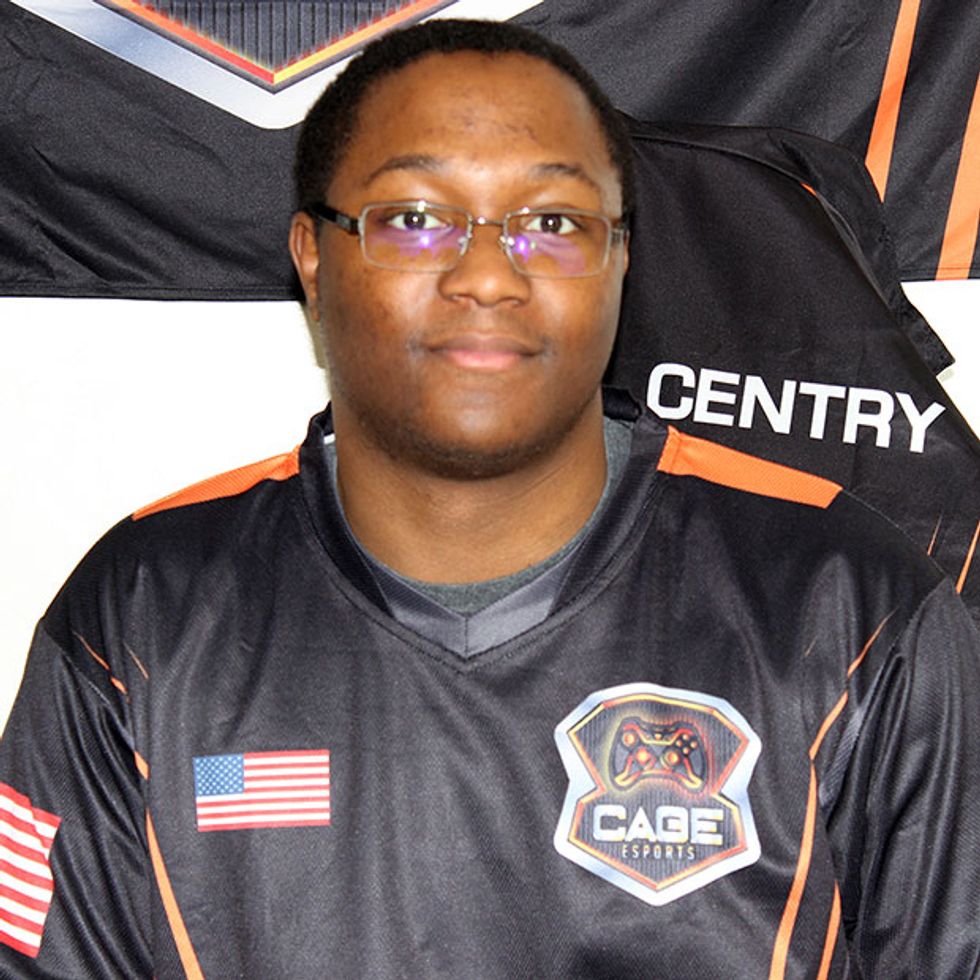THE INSTITUTE If you’re an avid video game player like IEEE Member Davon Williams, you’ve probably wondered if you could make a career in the world of competitive gaming by, for example, live-streaming your games or becoming a coach or announcer.
E-sports companies and organizations want to know whether a prospective employee has the knowledge, training, skills, and professionalism they’re seeking. That’s true whether they’re evaluating potential players or coaches. But no schools have offered a degree or certification programs to validate such knowledge.
Williams saw the need and desire for training, so he decided to launch the Centry Academy of Gaming and Esports. CAGE is an online school that plans to offer degrees in four e-sports specializations: player, coach, streamer, and announcer. Williams says the courses will give students the background, knowledge, and experience necessary to survive in the ever-changing e-sports landscape.
Although some universities now offer e-sports-related degrees, Williams says, they mostly focus on marketing and other business concerns. “They aren’t specifically targeted at gamers,” he says.
Williams, who says he’s been gaming since he could hold a remote, isn’t currently a professional player, but he has made money by competing online, as well as from coaching and sponsorships. He also dabbled in game design and game development while attending Georgia Southern University in Statesboro, where he earned a bachelor’s degree in computer science and helped establish a game development club there. Today he is a computer scientist working primarily for the U.S. Army Network Enterprise Technology Command, in southern Arizona.
“Establishing a lasting e-sports career means making enough money to support yourself and live comfortably,” Williams says. But, he says, there is no road map that lays out how to go from playing video games to becoming a professional.
“We’re seeing a lot of rising talent in the e-sports world not make it all the way to establishing a career,” he says, “because they don’t have the foundational business, marketing, legal, and networking skills they need before they step into the arena.”
One of the hardest things to do in e-sports is time management, Williams says. People streaming their game play online, for example, must figure out how to divide their day between playing the game, editing the footage, uploading it, interacting with and building their audience, and planning for the future.
“Having foundational knowledge in e-sports allows gamers to not only gain knowledge but also know when and where to apply that knowledge in a time-effective way to stay productive,” Williams says.

EARNING POTENTIAL
A lot of gamers would love to pursue a career doing what they love, according to a survey conducted last year by Limelight Networks, a content delivery service. Of 4,500 gamers surveyed, more than 35 percent stated they would quit their current job to work in e-sports if they could make enough money. More than half of the respondents between the ages of 18 and 35 said they would like an e-sports career.
If a gamer does break into the profession, it can be financially lucrative. According to an article on TheStreet, players can earn prizes of up to US $200,000, plus more from sponsorship deals and merchandise and ticket sales. Those who stream their game play online could be paid about $5 per viewer per month.
Players aren’t the only ones making money. Coaches can fetch $80,000 per year, and announcers can earn $1,000 per broadcast, the article reports.
THE CURRICULUM
CAGE’s decision to offer four majors “is not set in stone,” Williams says. “Additional majors may be added based on the interest and the job-placement potential,” he says.
CAGE’s instructors include Williams and Emily Cooper, one of the cofounders. Cooper is a middle school teacher during the day and a guild leader of the multiplayer role-playing game Final Fantasy XIV when she’s not busy.
CAGE’s course progression is modeled by knowledge or skill level from introductory 100-level classes to 500-level courses for specialized majors. Each level contains a capstone project that the student must complete before advancing.
A big difference between CAGE and a regular school, Williams says, is that the instructor decides when the student is ready to progress to the next level.
Introductory classes, which cover basics such as how e-sports differ from traditional sports and what kinds of jobs to expect, “will give us a chance to lay out our expectations for the students and provide CAGE’s methodology while giving the students some overall background in the e-sports scene,” Williams says.
Most content after the beginner class is hands-on. The 200-level series is about preparing to get ahead before playing by conducting research and developing strategy. The 300-level classes cover the student’s playing style. The 400- and 500-level topics are still being developed, Williams says. CAGE courses will total 131 credit hours, he says.
“Our worst fear is that the classes won’t provide students with the skills they’re looking for,” he says. That’s why since October CAGE has been undergoing a pilot phase in which experts evaluate each course.
“We don’t want to teach our content until we know we are delivering value in each class,” Williams says. “We want to make sure we can get students into the professional scene as soon as midway through our curriculum.”
Nearly 100 people are on CAGE’s wait list, he says, adding that he expects the academy to launch its first classes in October, with the material hosted on Google Classroom. The cost of the program has not been determined.
HELP FROM IEEE FRIENDS
Williams is self-funding CAGE while the company is in its pilot stage.
“Once my team feels the content is in good shape, we’ll start the investment phase,” he says.
In addition to Cooper, CAGE has four other cofounders including IEEE Member Skyler Nix, a senior principal system engineer at Northrop Grumman in Albuquerque. Nix is responsible for the startup’s marketing strategy.
Williams and Nix met through the IEEE Fort Huachuca (Arizona) Section, where Williams is the current treasurer. Several of the section’s members have reviewed the academy’s content and the curriculum structure, Williams says.
“I've gotten very positive responses about CAGE, and suggestions for some awesome ideas for how to improve it,” he says. The IEEE members also have helped create marketing materials.
Several members who have launched their own companies have advised Williams about what paperwork to file and other tasks that can help him succeed, he says.
“IEEE section members are always willing to help,” he says. “I think the support I’ve gotten from IEEE makes a statement that the community is there is help with whatever passion you have, you just simply have to ask.”
This article appears in the September 2020 print issue as “A New Academy Helps Professionalize E-Sports.”
Kathy Pretz is editor in chief for The Institute, which covers all aspects of IEEE, its members, and the technology they're involved in. She has a bachelor's degree in applied communication from Rider University, in Lawrenceville, N.J., and holds a master's degree in corporate and public communication from Monmouth University, in West Long Branch, N.J.



